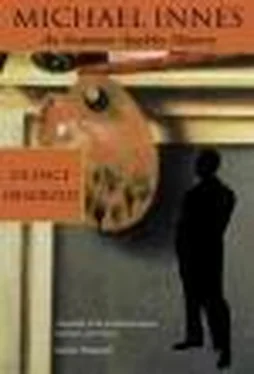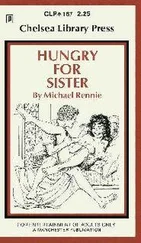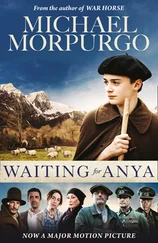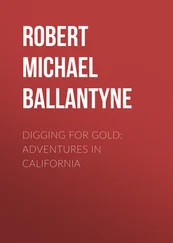Michael Innes - Lament for a Maker
Здесь есть возможность читать онлайн «Michael Innes - Lament for a Maker» весь текст электронной книги совершенно бесплатно (целиком полную версию без сокращений). В некоторых случаях можно слушать аудио, скачать через торрент в формате fb2 и присутствует краткое содержание. Жанр: Старинная литература, на английском языке. Описание произведения, (предисловие) а так же отзывы посетителей доступны на портале библиотеки ЛибКат.
- Название:Lament for a Maker
- Автор:
- Жанр:
- Год:неизвестен
- ISBN:нет данных
- Рейтинг книги:4 / 5. Голосов: 1
-
Избранное:Добавить в избранное
- Отзывы:
-
Ваша оценка:
- 80
- 1
- 2
- 3
- 4
- 5
Lament for a Maker: краткое содержание, описание и аннотация
Предлагаем к чтению аннотацию, описание, краткое содержание или предисловие (зависит от того, что написал сам автор книги «Lament for a Maker»). Если вы не нашли необходимую информацию о книге — напишите в комментариях, мы постараемся отыскать её.
Lament for a Maker — читать онлайн бесплатно полную книгу (весь текст) целиком
Ниже представлен текст книги, разбитый по страницам. Система сохранения места последней прочитанной страницы, позволяет с удобством читать онлайн бесплатно книгу «Lament for a Maker», без необходимости каждый раз заново искать на чём Вы остановились. Поставьте закладку, и сможете в любой момент перейти на страницу, на которой закончили чтение.
Интервал:
Закладка:
I got back as quickly as I could, feeling the tremor in the ice grow as I crawled. Lindsay’s hail came before I had reached the shore. For a moment we pulled against a dead weight – and certainly a weight for which the rope had never been designed. Then it moved. Lindsay’s voice came in triumph. ‘He’s out! Long and steady.’
I was aware that the tremor in the ice was now a faint vibration in the air, the ghost of a low moan. And just as we had got the almost inert body to safety it rose in pitch. Wind from up the loch. Lindsay’s voice came, rapid and controlled: ‘Rope again – if you can.’ A second later, sharp against the murmur of that swift and treacherous wind, came the splintering repercussion of a widely breaking surface.
‘Lindsay!’
There was no reply. I took one look at Christine Mathers and ran out over the now working ice.
6
The chill of that water is still in my bones. And more, I should think, in Noel Gylby’s. He was seconds behind me; he worked for an hour after he had hauled me out. But what haunts my memory with a dragging irony is the small scale of it all. Daylight showed how narrow is that last arm of the loch. It is not even very deep. And we were struggling with floating fragments of ice that a boy could pick up and pitch against a stone. Yet I do not think we failed to make every effort we could. In that sudden flaw of mountain wind the numbing water and the driving ice made a little Arctic hell. And from up the loch a powerful undercurrent was pulling, threatening again and again to draw us under an unbreakable barrier. It was days before the body of Neil Lindsay was recovered.
My head was injured; and because of that joined to exhaustion I must have lain unconscious for some time. When I recovered I found Wedderburn with a brandy flask and Ewan Bell the cobbler bending over me. I struggled up and asked a question.
Wedderburn shook his head. ‘I am afraid there is no hope. He is drowned.’
‘Miss Mathers?’
‘Miss Guthrie and Jervie have taken her back to the house.’ I turned round and saw lying near me the body of the rescued man. It stirred as I glanced. My mind through its unconsciousness had still, I think, been working in terms of mere accident and danger. It was now flooded by the knowledge of tragedy. And my face must have shown this. For Wedderburn said: ‘At least, now she need not be told until some proper time.’
I staggered to my feet impatiently. ‘Ranald Guthrie,’ I said; ‘you reckon without him still.’
Bell strode over to the prostrate figure and held up a lantern. He moved an arm, a hand into the light – a hand from which a couple of fingers had been amputated long ago. ‘Ian Guthrie,’ he said. ‘Ranald is dead.’
‘Dead! You are sure?’ My head still swimming, I stared at him stupidly.
The old man straightened up. ‘Certain. I killed him.’
PART SEVEN
A CONCLUSION BY EWAN BELL
1
Yesterday I had a letter from Christine. The postmark – Cincinnati, Ohio , – that seemed outlandish but a year since is grown familiar now: wonderful it is how even an old man will get used to change.
Fient the change, though, could you find in the Kinkeig folk. Mistress Johnstone herself brought the letter over from the post-office and stood about for near ten minutes, fell interested in other folk’s old shoon. ‘Read your letter, Mr Bell,’ she said, ‘and never mind me.’ And half an hour later in came the schoolmistress, her nose maybe a ghost of a bittock longer than the wintry day she went up the glen to the meikle house. Would I take a ticket, she was wondering, for a right trig play the bairns were to give in the church hall, choke-a-block it would be with self-expression and child psychology, and the whole written by the dux, a genius he was for certain, wee Geordie Gamley? And would there be any news from the world coming into Kinkeig these days?
And a week or two ago I had another letter from America, the postmark less familiar: San Luis Obispo, Cal . You could scarce, Mrs Johnstone said, look for anything more heathenish than that. And would it be from a black man, now? I opened the letter and said no, it was from a schoolfellow settled in those distant parts. Which was true enough. For he well remembered, Dr Flinders wrote, the two of us sitting under the old dominie, the time he came to the village school before being sent to Edinburgh. An unco thing for a man to write who was born in Australia when I was twenty. But Mistress Johnstone knows nothing of that.
Christine’s letter yesterday I took over to the manse and Dr Jervie and I read it together. I think he’s aged, the minister, this past year; certain his hand was trembling as he laid the letter on his desk – the letter that said Sybil Guthrie had told her the truth about Neil. And for a time he bided silent, looking out over the warm garden and the glebe where the harvest, heavy and yellow, was drawing on. ‘And time mellows everything, Ewan Bell,’ he said.
I put the letter back in my pocket. ‘Do you think,’ I said, ‘that one day she might find a man?’
‘And why not, Ewan? Maybe after Neil Lindsay Christine could never marry in the Scottish gentry. And never after Neil Lindsay another crofter lad. But now she’s in a new world. And see how already she’s opening to the strangeness of it, coming out of her shell to watch and puzzle and criticize. One day she’ll see not the strangeness only but the beauty and then–’ He stood up. ‘But it mayn’t be in our time, old friend.’
And today I’ve tramped up the glen. Eighteen months have passed since I first took pen to set this narrative in motion. I have a fancy to end it in the shadow of Castle Erchany.
2
John Appleby, that clever London man, would have it that the Guthrie case defeated him. He neglected, he says, the single element that changed its whole composition at the last. There was one question, he insists, he forgot to ask. But the reader will have seen that he did ask it – and would have asked it again that night but for the speed things happened with. Who was it slipped out of the schoolroom in front of Hardcastle and the lad Gylby when they were on their way to the tower? You know the answer, Reader. It was Ewan Bell.
Long I’d chewed over that strange letter the daftie brought me from Christine. But, old man and slow that I am, it was Christmas Eve before I saw that at the heart of it, unknown perhaps even to Christine herself, was an appeal. Nor perhaps did that truth of it rise clear in my own mind, for when I started up the glen in the gloaming I told myself it was only because I must bid the quean goodbye. But deep down I recognized the appeal and deeper still I must have felt the danger: I wouldn’t otherwise have attempted a road that was danger and daftness itself.
I reckoned to reach the meikle house by about eight o’clock and trust for the night to Guthrie’s hospitality or to a pallet like the schoolmistress had thought of in the loft at the farm. Only in such a reckoning I was thinking of myself as a younger man. By some freak of nature I reached Erchany alive through the storm that night, but it wanted only half an hour to midnight as I plodded up the last stretch of the drive, the storm lantern I had brought with me giving but the smallest glimmer in that yet driving snow. There was a light in the schoolroom; I climbed down to the moat and then, with some difficulty, up to the little terrace. Mr Wedderburn was right in spying in me the ruins of an athlete; but it seems I keep a bit of muscle still.
I wonder now that I took this secret road to Christine; no doubt it shows how strong was my instinct that Guthrie was an enemy. She let me in by the window and I could see she was right glad that I had come. She had a bit suitcase – no bigger than Mistress McLaren’s Sabbath handbag it looked – beside her, and a mackintosh over a chair. I said ‘Surely you’re not going tonight?’
Читать дальшеИнтервал:
Закладка:
Похожие книги на «Lament for a Maker»
Представляем Вашему вниманию похожие книги на «Lament for a Maker» списком для выбора. Мы отобрали схожую по названию и смыслу литературу в надежде предоставить читателям больше вариантов отыскать новые, интересные, ещё непрочитанные произведения.
Обсуждение, отзывы о книге «Lament for a Maker» и просто собственные мнения читателей. Оставьте ваши комментарии, напишите, что Вы думаете о произведении, его смысле или главных героях. Укажите что конкретно понравилось, а что нет, и почему Вы так считаете.











